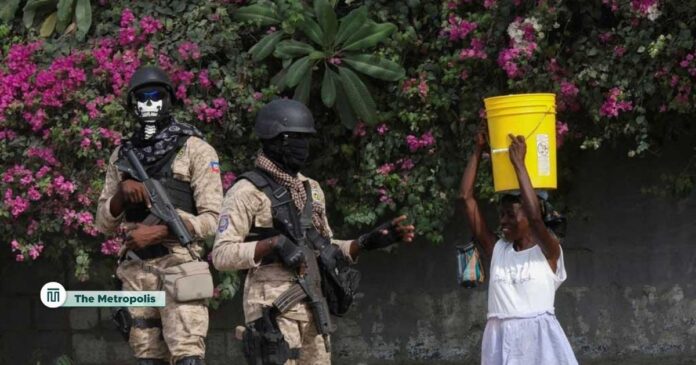The number of people in Haiti experiencing severe hunger has increased in recent months due to a social and political crisis fueled by gang activity. An estimated 5.4 million people have run out of food and gone without it for a day or longer.
Of those, data released on Monday by the global hunger watchdog Integrated Food Security Phase Classification, or IPC, shows that at least 6,000 citizens of the Caribbean island nation currently experience catastrophe-level hunger.
Catastrophe or famine-level hunger, which can lead to starvation, destitution, and even death, occurs when there is nearly no food left after using all coping mechanisms.
The number of people going without food has increased from an estimated 4.5 million in late March. IPC expects the number to exceed 5.5 million by June of next year, which is nearly half of Haiti’s population of over 11 million.
The IPC attributed “serious difficulties in supplying basic foodstuffs to the regions, limiting households’ physical and financial access to food.” to the rising levels of violence in and around Port-au-Prince.
According to the IPC, an additional aggravating factor was the high rate of inflation during a period when up to 70% of household budgets are spent on food.
Since 2014, the hunger that has been plaguing Haitians has gotten much worse, with nearly half of the people experiencing severe food insecurity. According to US aid organization Mercy Corps, this was only 2% ten years ago.
Aid organizations and U.N. agencies use the IPC’s catastrophe warning to initiate Phase 5, the highest point on a scale, to assess food insecurity, which can progress to the declaration of a region as famine-stricken.
When at least 20% of the population faces severe food shortages, one in three children suffers from severe malnutrition, and two out of every 10,000 people die each day from starvation, disease, or malnourishment, it is necessary to declare a famine.
Currently, estimates indicate that 18% of Haitians are suffering from Phase 4, or emergency-level hunger.
Makeshift camps, home to many of the worst affected, house some of the over 700,000 people displaced by the ongoing conflict. Many of them fled with nothing and are currently unable to find work to support their families.
The gangs ejected us. My father and mother both passed away. We are unable to return because the gangs burnt them alive in the house,” Rose Petit-Homme, a camp resident in Port-au-Prince, told Reuters.
The main port operator in the capital extended its closure, which it had announced last week, through Friday on Sunday. This move is likely to exacerbate shortages and drive up costs.
On Monday, the UN Security Council extended the authority for a Kenya-led international security force to aid Haitian law enforcement in their fight against gangs. One year into the mission, few troops have deployed, and funding remains tight.
China and Russia, who both have veto power, opposed the request made by Haiti’s interim government to transform the force into an official UN peacekeeping mission.



